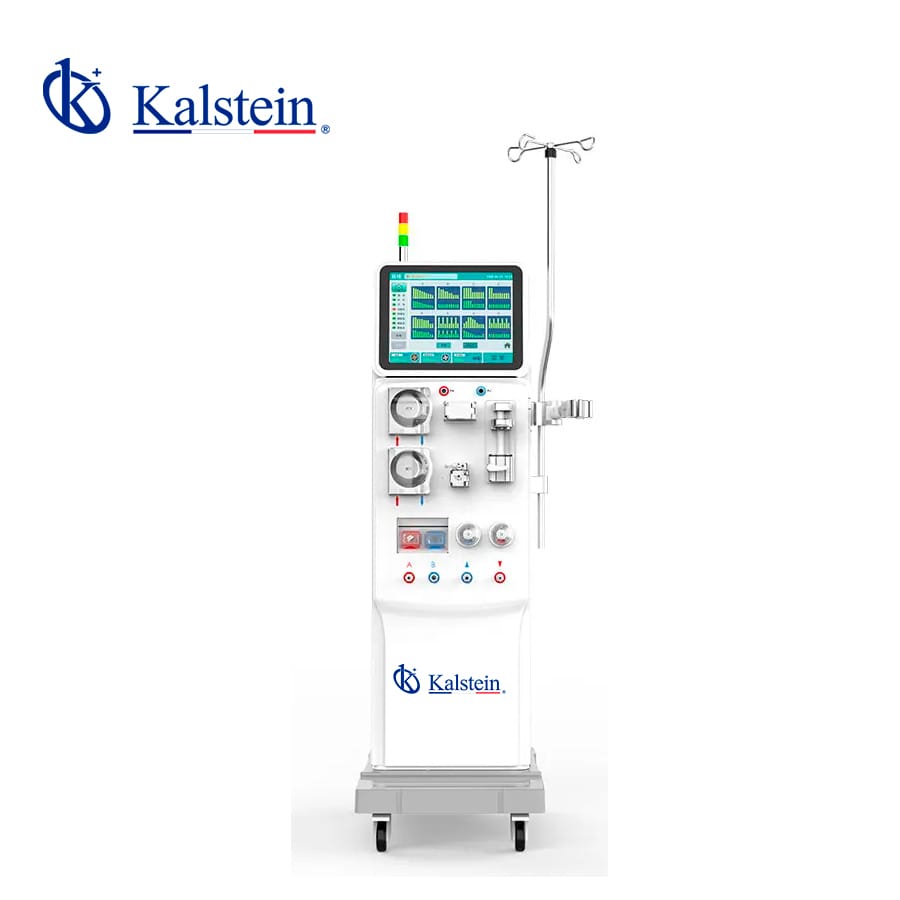Hemodialysis is a vital medical procedure for patients with kidney failure. Choosing the right hemodialysis machine is crucial for both treatment efficiency and improving the patient’s quality of life. In this article, we will conduct a detailed comparison between the Kalstein Double Pump Hemodialysis Machine and its main competitors in the market, evaluating their advantages and disadvantages in terms of laboratory test efficiency and patient treatment.
We understand that you need equipment that delivers maximum value to your laboratory. We invite you to visit https://kalstein.eu/categorie-produit/medical-sector/hemodyalisis-machines/?lang=en, to immerse yourself in our universe of cutting-edge technology equipment. Our prices are competitive and accessible, we combine the convenience of online shopping with the guarantee of an exceptional product. Because you deserve the best, we create and offer top-tier laboratory equipment. Make your choice today, where science comes to life. https://kalstein.eu/?lang=en
Efficiency in Laboratory Tests
Efficiency in laboratory tests is a determining factor in choosing a hemodialysis machine. The Kalstein Double Pump Hemodialysis Machine stands out for its precision and speed in conducting these tests. Equipped with advanced technologies, these machines allow precise results in significantly less time compared to other brands, reducing waiting time and increasing productivity in laboratories.
In contrast, some competitors struggle to maintain consistent efficiency in laboratory tests. Variability in results and prolonged time to obtain them are common issues. Brands like Fresenius and B. Braun, although recognized for their quality, sometimes face challenges in terms of consistency and speed in delivering test results, affecting operational efficiency in clinical settings.
Improvement in Patient Treatment: Kalstein Technology
Improvement in patient treatment is a priority for any hemodialysis machine. The Kalstein Double Pump HD incorporates innovative features that optimize treatment, such as advanced sensors and control algorithms that automatically adjust dialysis parameters according to the patient’s specific needs. This not only improves the effectiveness of the treatment but also increases patient comfort and safety.
On the other hand, competitors like Baxter and Nipro, although also offering high-quality machines, do not always have the same advanced automatic adjustment capabilities. This can lead to a less personalized patient experience and, in some cases, lower treatment efficiency. Machines that do not automatically adjust parameters may require more constant supervision, which can be a significant disadvantage in busy clinical environments.
Operational Costs and Maintenance
Operational costs and maintenance of hemodialysis machines are critical factors affecting purchasing decisions for healthcare centers. The Kalstein Double Pump HD stands out for its low operational costs and easy maintenance, thanks to its robust design and high-quality components that reduce the need for frequent and costly repairs.
In comparison, other brands like Fresenius and Baxter may present higher operational costs. These machines, although efficient and technologically advanced, often require more intensive maintenance and more expensive spare parts. This can significantly increase long-term costs for healthcare centers, especially those with limited budgets.
Ease of Use and Training
Ease of use and the necessary training to operate hemodialysis machines are essential aspects to ensure efficient operation in healthcare centers. The Kalstein Double Pump HD is known for its intuitive interface and ease of use, reducing the training time required for medical staff and decreasing the likelihood of operational errors.
In contrast, some machines from competitors like B. Braun and Nipro can be more complex to operate. These machines, although advanced, sometimes require more extensive training and can be less intuitive for new staff. The operational complexity can result in longer downtime and a steeper learning curve, which can be a challenge in clinical settings with high staff turnover.
Reliability and Durability
The reliability and durability of a hemodialysis machine are crucial to ensure continuous and uninterrupted treatment for patients. The Kalstein Double Pump HD has proven to be highly reliable, with a long lifespan and a low failure rate. This is due to the superior quality of its components and rigorous quality control during manufacturing.
However, some machines from competitors like Fresenius and Baxter, although also recognized for their reliability, may not reach the same level of durability as Kalstein machines. Slightly higher failure rates and the need for more frequent component replacements can affect treatment continuity and increase long-term operational costs.
Innovation and Technological Updates
The ability to innovate and stay up-to-date with the latest technological advancements is fundamental in the field of hemodialysis. Kalstein stands out for its constant commitment to innovation, regularly introducing technological improvements and software updates that optimize the performance of its Double Pump HD machines.
In comparison, some competitors may be slower in adopting new technologies. Although brands like Baxter and Nipro also invest in innovation, the speed and frequency of updates may not match Kalstein’s. The lack of regular updates can result in less efficient machines and suboptimal performance over time.
Conclusion
In conclusion, the Kalstein Double Pump Hemodialysis Machine offers significant advantages compared to its main competitors in the market. Its efficiency in laboratory tests, improvement in patient treatment, low operational costs, ease of use, reliability, durability, and capacity for innovation position it as an outstanding option for healthcare centers.
However, it is important for each institution to evaluate its specific needs and conduct a thorough comparison before making a purchasing decision. Choosing the right hemodialysis machine can make a significant difference in treatment quality and operational efficiency.

